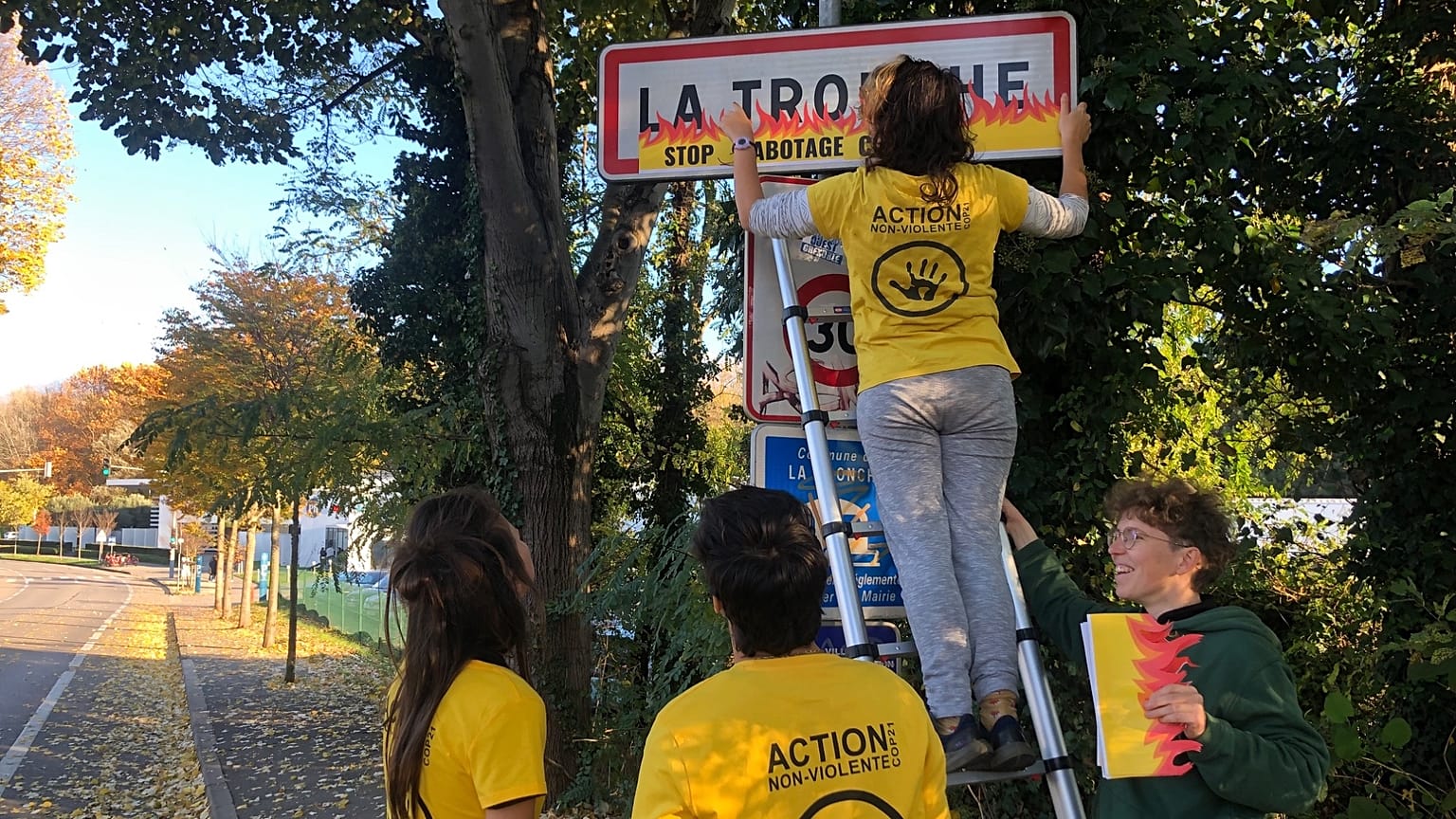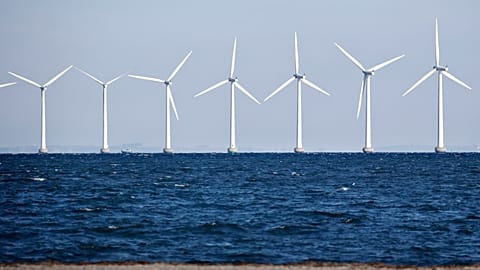Flames have been glued to a number of road signs and billboards across France, as activists beg ‘stop climate sabotage’.
Hundreds of road signs and billboards across France were symbolically set on fire as citizens demanded “concrete measures for international climate justice”.
 ADVERTISEMENT
ADVERTISEMENT
 ADVERTISEMENT
ADVERTISEMENT
Environmental activists glued flame stickers to town entrances in areas such as La Tronche, Sainte Luce, Meylan, Pornichet and Corenc ahead of the now-finished UN climate talks in Belém, Brazil.
The figurative fires were also emblazoned with the slogan “stop climate sabotage”.
‘Denounce the culprits’
The stunt was the latest move from ANV-COP21 activists, which describes itself as a non-violent group of citizens who “refuse to accept climate changeand the social injustices it engenders”.
ANV-COP21 says its fiery demonstration highlights that while “we are all affected by the consequences of climate”, leaders of wealthy nations and the fossil fuel industry have scuppered chances of real change.
They point to statistics that found 93 per cent of French people have noticed an increase in extreme weather events, with 91 per cent attributing it to climate change, as well as the 480 deaths caused by the country’s heatwaves this summer.
“By affixing flames and the message 'STOP CLIMATE SABOTAGE' to billboards in our towns and cities across France, we aim to denounce these climate criminals, make their victims visible, and demand the implementation of concrete and immediate measures to limit climate change and protect populations,” ANV-COP21 says.
“The French government must assume its responsibilities by advocating for ambitious positions at COP30, such as establishing a binding timetable for phasing out fossil fuels and/or implementing concrete measures for international climate justice.”
The transition away from fossil fuels
The chance to establish a road map to transition to clean energy was quashed at COP30, as all mention of fossil fuels was erased from the final deal.
Despite growing support from more than 90 countries, including France, oil-rich nations such as Saudi Arabia blocked such a commitment in the Global Mutirão. Hope for a fossil fuel-free future now relies on a working group that invites more than 85 countries to voluntarily outline their plans to transition to clean energy.
Colombia’s Global Fossil Fuel Phaseout conference, which is being co-hosted by the Netherlands, will address this issue in April next year.
Was COP30 ‘sabotaged’?
Agreements at the UN summit require consensus from all parties, which means progress is often slow and incremental. So-called petrostates proved the biggest obstacle in establishing a roadmap to fossil fuel phaseout, pushing the quest outside of the COP process.
A recent analysis also found that1,600 fossil fuel representatives were present at COP30, outnumbering almost every country delegation.
The Kick Big Polluters Out (KBPO) coalition says this was a 12 per cent increase from last year’s climate talks in Baku, Azerbaijan and was the largest concentration of fossil fuel lobbyists at a COP since the coalition started analysing attendees in 2021.
The overall number of fossil fuel representatives at COP30 is less than it was at COP29 in Baku last year, but the proportion is higher as there are fewer people in total attending the talks in Belém.
Only the host country, Brazil, had sent more people than lobbyists, with a delegation of 3,805.

















